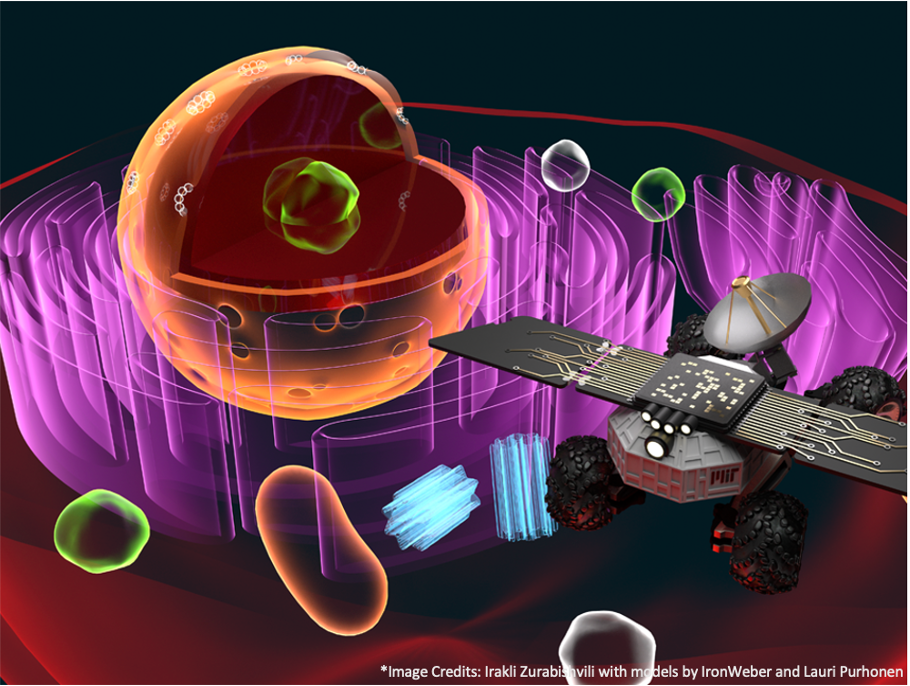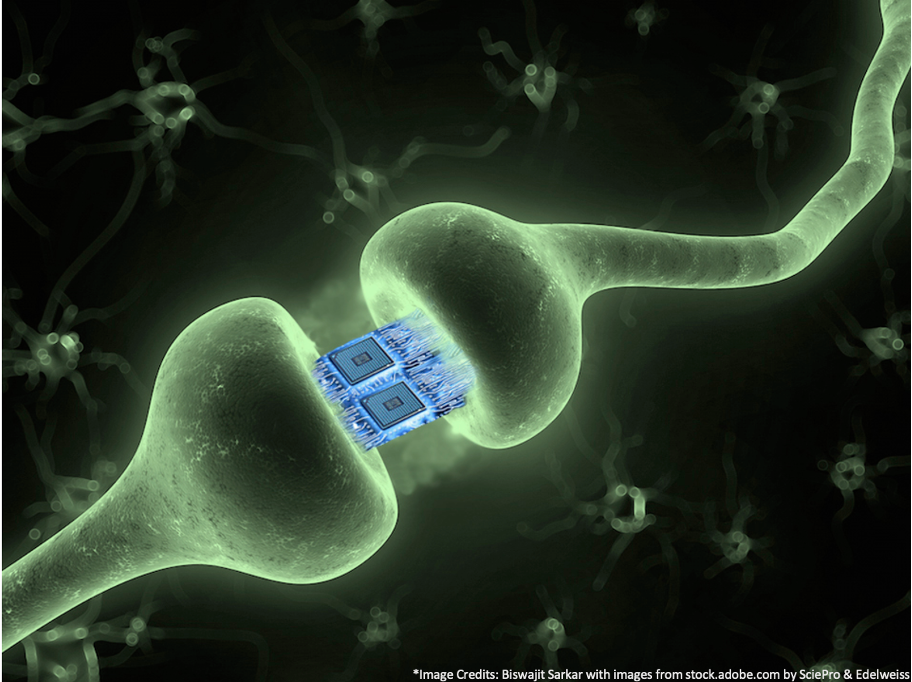Life Nanomachine Synergism
Nanoelectronics has the potential to enable radical tools for in-vivo interrogation of our biological systems in order to answer fundamental questions in biology as well as to provide novel technologies by combining diagnostics with automated therapeutic effects at cellular precision. Realization of this promise, however, will require severe dimensional and power scaling of the electronics, which is beyond the physical limitations of conventional nanoelectronics, dealing a hard blow to this dream. Our aim is to develop extremely energy-efficient and ultra-scalable next-generation nano-machines which overcome these fundamental limitations and can make this dream come true, opening up entirely new avenues unthinkable earlier. These devices will possess the capabilities of energy harvesting, wireless communication with systems outside the body and can be remotely controlled. They will be coated with biomolecules such that they can effectively camouflage and trick the body into thinking that it is a part of its own biological system. Such devices can cause a paradigm shift in life-machine synergism.
Recently we have developed the technology called Cell Rover - first ultra miniaturized antenna that can work wirelessly inside a living cell in 3D biological systems. This technology can explore and augment the mysterious inner environment of the cell and can bring in the prowess of information technology inside a living cell to create cellular scale-cyborgs! This work has been featured as the Editors’ Highlight in Nature Communications which showcases the 50 best papers recently published.
The versatility of electronics is that they are inherently very fast and can be designed according to an engineer’s dream to perform unique functions, which are beyond the capabilities of biology. While our immediate aims, are to develop electronic devices for probing and controlling/modulating (for therapeutics) the body and brain, our long-term goal is to achieve seamless integration of nanoelectronics-bio hybrid structures into the biological systems to incorporate functionalities, not otherwise enabled by biology, and thus, help us transcend our biological constraints.
D. Sarkar, " Could We Soon Augment Our Brains?", TEDx 2016

